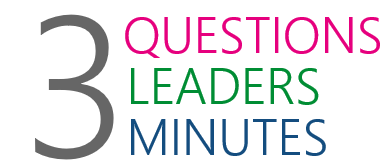
As part of our 333 series, we ask three marketing experts, three questions, in a three minute read. Here we ask 3 marketing leaders – what’s the future for marketing operations?
We asked three questions to an expert panel below and their answers follow.
Amanda Phillips
Director of Global Brand Operations
Jaguar Land RoverPaul Say
Marketing Transformation Leader
Ex Sage, firstdirect, TSB, E.ONAlex Petrogiannis
Marketing Director
Craft Gin Club
1
Clearly Marketing Operations are affected by the COVID-19 crisis, but there are also opportunities to optimise the marketing process because of it. What are your main observations living through this crisis?
Amanda – Jaguar Land Rover leapt into action quickly to adjust and amend its business operations, and in doing so, the marketing team have been working in an agile fashion to ensure that we remain relevant as brands across all our global markets. Marketing Operations’ role in this was to reflect the new ways of working with our suppliers and within our working processes internally. We have learnt some valuable lessons so far in bringing cross-functional teams together speedily to respond to customer needs – this is something we want to continue into our new normal.
Paul – A crisis is generally temporary or limited in time. COVID-19 is here for a significant period. Until a vaccine is found organisations and marketing departments will be in some state of business recovery. Organisations need to accept that the dispersed marketing operations organisation will remain. Yet with that comes benefits. Focused and dedicated comms teams set up for COVID-19, that operated at pace and were empowered to develop, approve and distribute communications to keep customers informed will be retained as organisations evolve their customer experiences for the new operating environment. Take time to review and reflect on how the crisis was managed and take the best bits to evolve current ways of working.
Alex – At Craft Gin Club, we’ve been fortunate enough to see a sustained increase in the demand of our services as consumers turned to online retail during lockdown. We also had to reorganise our ways of working both internally and externally. As a start-up, we don’t have the luxury to have a standalone marketing operations function so it was everyone’s responsibility to adapt processes, adopt new tools and increase performance. I’m confident it’s a mindset & practical shift that will shape the future of our marketing organisation.
2
Marketing Operations is clearly not a new thing but it’s fair to say that it has seen a steep rise in its importance. In addition to the core responsibilities, Marketing Operations is becoming more strategic and leading important changes in organisational design. What are the future opportunities for Marketing Operations in your opinion?
Amanda – Marketing Operations needs to constantly wear the ‘effectiveness’ and ‘efficiency’ hats for the marketing department and the wider commercial teams. Our remit is one that can reach beyond traditional boundaries of the marketing department alone, to make changes as to what we choose to keep in-house and what we use external specialists for, which have benefits for many internal customer groups.
Paul – Marketing Operations, marketing technology & customer data go hand in hand as organisations attempt to derive the benefits of marketing automation and liberating customer data to drive customer engagement and experiences. Equally, marketing operations are adapting and adopting AGILE and LEAN principles of ways of working commonly adopted in IT departments. If your Marketing Operations lead is not the key marketing lead/technology budget holder in partnership with your IT department, then they should be. They share common language and – for Marketing Operations leaders – IT is a major enabler for their success. Secondly – high quality, accessible & updatable customer data is essential to derive the returns on investment expected from customer communications & experiences. Marketing Operations must have a key seat at the data strategy definition/maintenance table as they are a key internal customer of an organisation’s data services.
Alex – The biggest opportunity lies in breaking the historical distinctions to create a more fluid and responsive organisation. Thinking in terms of offline and online or brand and performance is no longer suited to the current period of continuous change. Marketing Operations can help reorganise resources around what the consumer wants and what the business needs.
3
The post COVID-19 situation with all its unknowns is clearly a future challenge, what other challenges do you see for Marketing Operations in the next 2-3 years?
Amanda – Marketing automation and its role to provide even more relevant, targeted and personalised experiences to our customers continues to be a main focus for the marketing operations function – our digital, data and technology journey has implications across ways of working, skills and capabilities, internal governance beyond just what the ‘machines’ can bring – it is an exciting challenge to have and one where both the client and agency teams can learn, grow and succeed.
Paul – During my time at First Direct there were a number of habits that the marketing department had. We were all data literate, using data to inform customer experiences and contact strategies. We followed a clear process to get stuff done. Everyone knew their role, their responsibilities and worked with pace and accuracy. We listened to feedback loops early in any new experience or communication so that we could reduce drop out rates in customer journeys and improve marketing effectiveness. The clarity of purpose and process meant that within that framework, creativity was not compromised but positively flourished. It created time for us to be imaginative. Marketing professionals were trusted and empowered. Engagement was high and our work award winning work reflected that.
Based on this I see two challenges. The first is technical. There are many cloud based marketing technology solutions that will meet/suit the new ways of working that COVID-19 has forced upon organisations – i.e. remote working, dispersed workforces and auditable workflow. If your organisation does not have a marketing technology & talent management strategy/plan/capabilities in place then you will be playing catch up and in the short term be frustrated with slow and limited marketing operations capabilities. This may impact marketing effectiveness and potentially revenues and customer satisfaction.
The second is attitudinal. Data, processes, reporting and analysis do not always thrill marketing professionals. Those phrases are perceived by some as blockers. The creative process is what has drawn many to the profession. At first direct we proved that creating good habits within a clear & understood way of working was engaging for our people and attracted talent to the team. The outputs spoke for themselves but that required commitment from everyone in the team. Failure to do so broke the process, frustrating progress and performance. Buy in to ways of working, acceptance of the transparency and discipline of workflow practices need to be embraced not resisted. This is done through talent acquisition, proactive talent management and training but ultimately it is a mindset.
Alex – From a marketing operations perspective, the COVID-19 health crisis is just another example of the unpredictable nature of the current socio-economic landscape. Preparing for but also accepting you can’t be prepared for all challenges the future might throw up requires a more flexible approach to organising human, financial and technological resources.
In my opinion, the biggest challenge is getting to terms with the fact that consumers now have the ability to shape and radically change what brands offer and how they behave.
If you would like to chat more on these topic or find out about how Flock can help with your marketing operations please don’t hesitate to let us know below.





